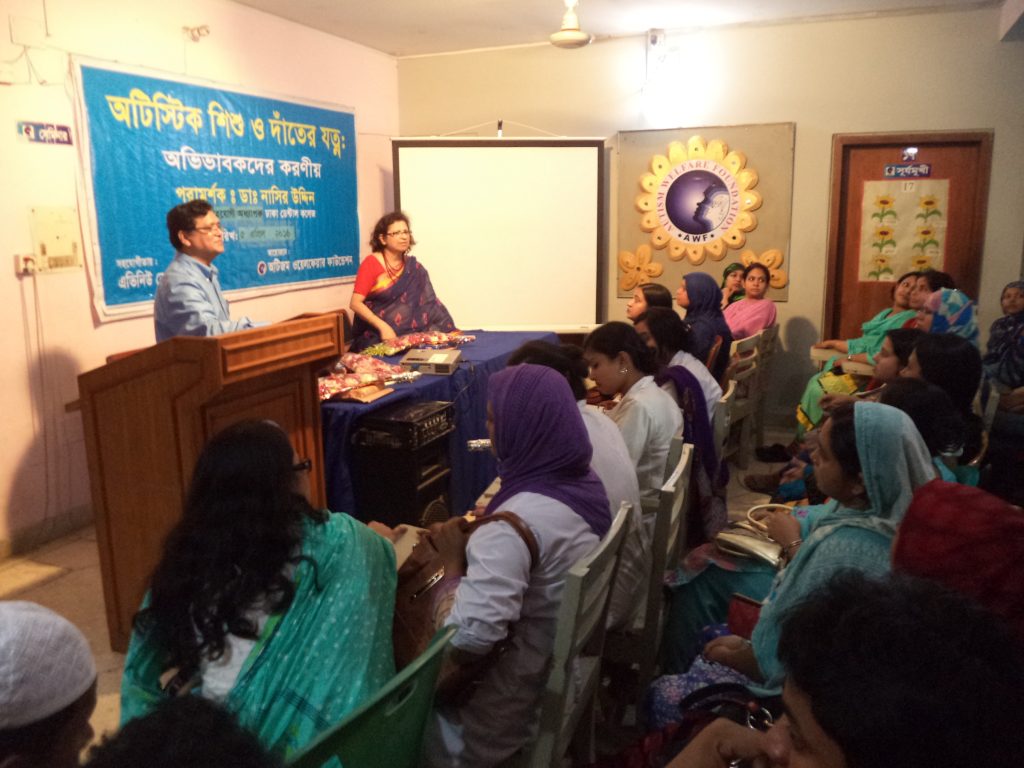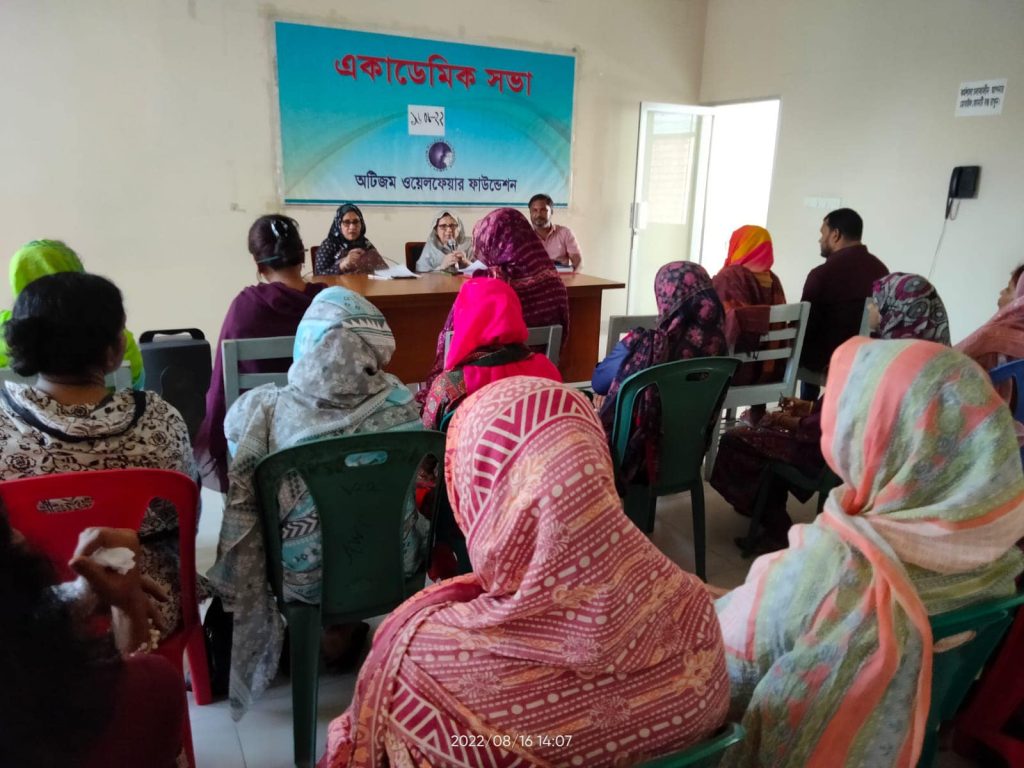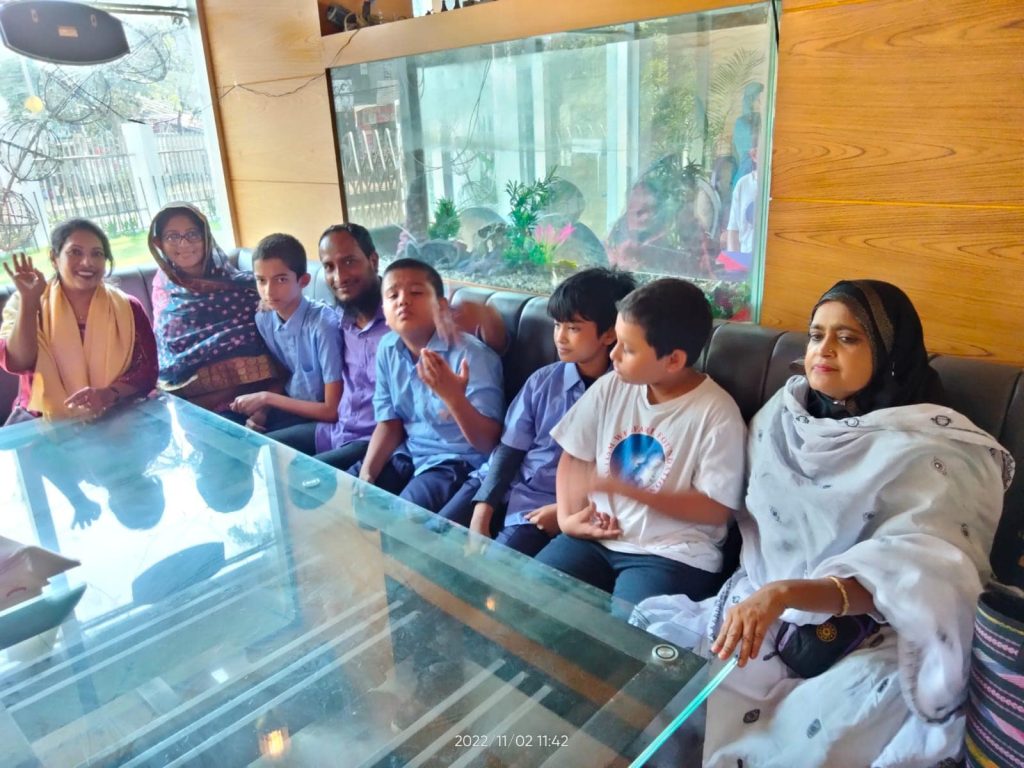Teachers Training
Children with autism benefit most from teachers with a comprehensive understanding of autism and autism-specific techniques. AWF has conducted practical and interactive training workshops for its teachers and staffs on various aspects of autism. Through extensive exposure in practical hands-on training and lectures, teachers learn to become comfortable with the principles and practices of working with persons with autism. Along with knowledge about autism and special education, the teachers gain knowledge on behaviour modification, social development, language development, and family counselling. The practical training and workshop are organized on the last Friday of each month and held for 4 to 5 hours. All sessions are conducted by the principal of AWF, Dr. Rownak Hafiz.




